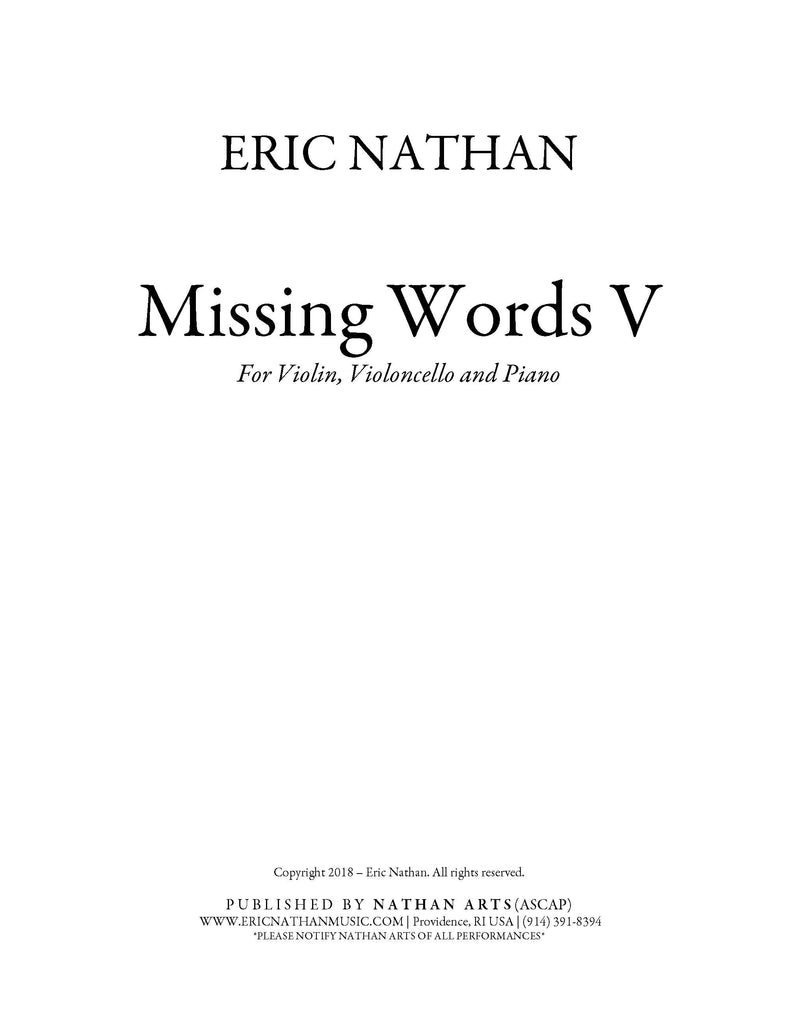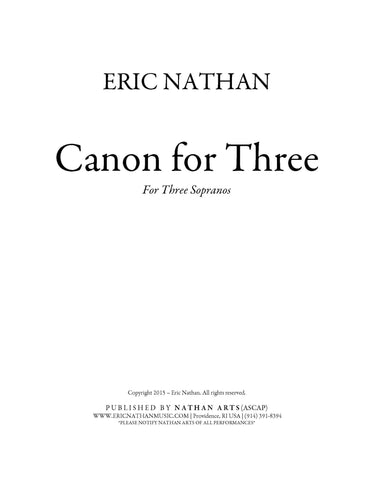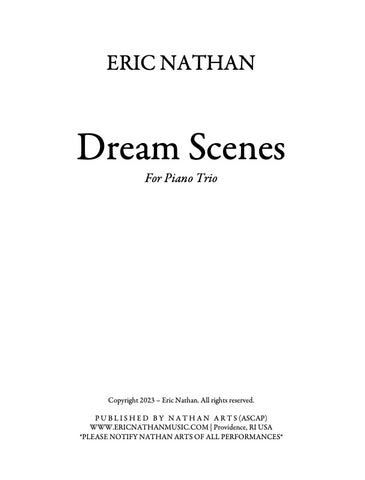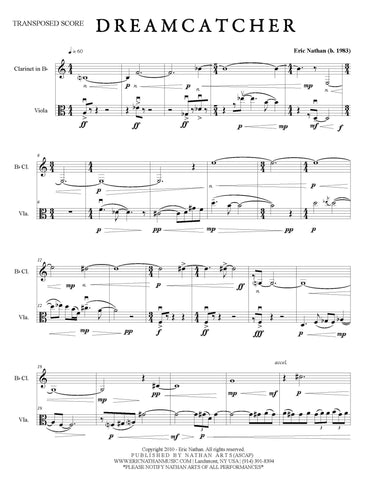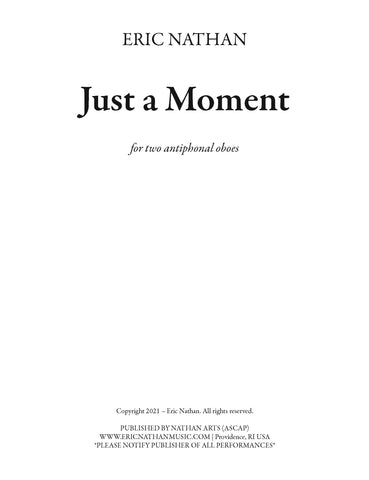Missing Words V (2018) - For Violin, Cello, Piano
$ 95.00
Instrumentation
For Violin, Cello and Piano
Commissioned by Coretet an associate of Yarlung Artists, for the Neave Piano Trio
Program Note
“Missing Words V” (2018) is the fifth in an ongoing series of compositions composed in homage to Ben Schott’s book, Schottenfreude (Blue Rider Press/Penguin Group), a collection of newly created German words for the contemporary world. The German language has the capability to create new words through the combination of shorter ones and can express complex concepts in a single word for which there is no direct translation in other languages. Such words include Schadenfreude, Doppelgänger and Wanderlust, and these have been adopted into use in English. With his book, Ben Schott proposes new words missing from the English language that we can choose to adopt into our own vocabulary.
In my work, I take three of Schott’s words, and their various conceptual associations, as points of creative departure. The first movement responds to the word, “Ludwigssyndrom,” which Schott directly translates as “Ludwig’s-Syndrome,” and likens to finding something written in one’s own hand that is impossible to decipher. The use of “Ludwig” is undoubtedly a nod to Ludwig van Beethoven and his notoriously messy manuscripts. Many composers since Beethoven have also had another sort of “Beethoven-Syndrome,” which one might define as the fear of composing a ninth symphony (compounded with the fear of dying before completing a tenth). I looked at the facsimile of the first draft of Beethoven’s ninth symphony and reinterpreted a few selected pages from the first and third movements as if they were sketches for my own piece, reinterpreting and incorporating the wild character of Beethoven’s handwriting and all of his scribbles, cross-outs, and misaligned gestures. For instance, I re-imagined impassioned cross-outs as intentional short-hand for low, rumbling textures, and misaligned beats between staves as blueprints for layered streams of music progressing at different rates. As I composed, I thought of the manuscript pages not as composite musical statements but as repositories of ideas, and as springboards for my own. Much of the music evokes the stormy passion of his handwriting, but we arrive at the end in an ethereal D major world, evoking Beethoven’s joyous unfolding melody from the center of the third movement as if from a distant memory.
The second movement responds to the word, “Kissenkühlelabsal,” which Schott translates as “Pillow-Chill-Refreshment.” This word refers to the liberating and immediate sense of release experienced by laying one’s head on a pillow. This movement was partially inspired by my visit to Old Delhi, India, and the relaxation I felt laying down to rest after a long day out in the city. I was particularly inspired by the beautifully cacophonous textures of car horns from the rickshaws and cars in the crowded streets, and have evoked a sense of these at the opening of the movement.
The final movement reflects on the word, “Watzmannwahn,” which refers to the perilous peaks of the Watzmann mountain in the Bavarian Alps, and the wildly rash risks climbers take when they are close to reaching the summit. My thoughts ventured to the musical tradition of a concerto cadenza, a moment that typically happens close to the end of the long musical journey between soloist and orchestra. The soloist typically attempts risky virtuosic feats before arriving at the goal of a melodic trill that then signals the return of the orchestra for the coda that follows. In the case of Beethoven’s Concerto for Violin, the cadenza also precedes an orchestral coda where Beethoven takes great harmonic risks, avoids a quick resolution to the main key, and leads us through a forest of unexpected turns until we finally arrive on the main theme in D major. My movement begins by quoting Beethoven’s preparation of the cadenza from his violin concerto, and then creates a game for the trio, where I have given a simple theme to the violin that leads towards resolution but is continually interrupted by each player as they over-zealously try to complete the phrase and attain the goal of the final trill. However, each continually misses their mark, causing the trio to spiral out of control. As I neared completing this work, which also serves as the end of Book I of Missing Words (comprising Missing Words I-V), I sought to embody a sense of Watzmannwahn as a composer, taking my own compositional risks as I neared my musical goal.
“Missing Words V” was commissioned by Coretet, an associate of Yarlung Artists, for the Neave Trio. It follows four previous works in the Missing Words series, which were composed for the Berlin Philharmonic’s Scharoun Ensemble, American Brass Quintet, Christopher and Parry Karp, and Boston Musica Viva, respectively. (Note: the English translations used in the movement titles are quoted directly from the text of Ben Schott’s Schottenfreude, 2013).
Duration
13 minutes
Score Preview
